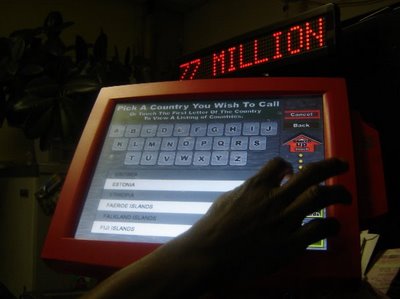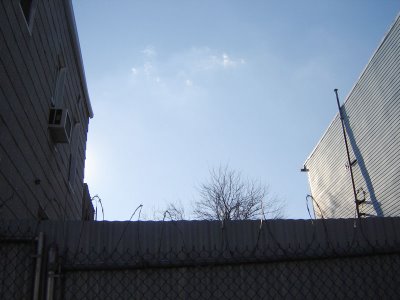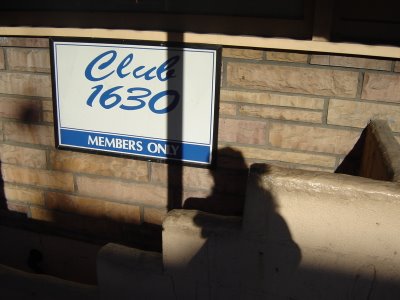
In the brick school that overlooks all of Blissville, boys entered from the front, girls from the side, so the stone lintels dictated anyway.
Judging by its architecture, it must have been built around the turn of the century. Its builders constructed it to last a century or more. They couldn't have known that events greater than weather and age would force the school to close its doors, only after 30 years or so. Blissville lost much of its population in the years of the second World War.
In the peace that followed, new people came to Blissville, even a community of Satmars. They bought the school and converted the building into a yeshiva.
But after five years or so, they left to migrate to Williamsburg, where they still live.
And so the school emptied out again. It stood vacant during the the 1960s passed, the 1970s, and for part of the 1980s, until an outside investor purchased it. He renovated it, then turned it into a hotel. He named it the City View Motor Inn after the top rooms that look over all of Blissville, out to the skyline of Manhattan .
Then for some reason he sold it. One after another, hotel hopefuls tried to make it work, five owners in five years. And still the building stood empty.
Mohammad Daoud is its latest owner, smarter and more determined than his predecessors.
His first move was to join forces with
Best Western. He's been with them now over 15 years.
Then he renovated the hotel again until barely a vestige of the old school remained.
He instituted a shuttle service to the airports and city. And he signed on to take LaGuardia Airport's stranded passengers. He has garnered business from the Brooklyn Navy Yard, the Chamber of Commerce and the District Attorney's office, all because of his innitiatives.
A room at the Best Western here starts at $150. A room with a view costs twice as much. But all rooms include his Delux Complimentary Continental Breakfast, with fresh juice, donuts and bagels with a special bagel cutter.
And now the 71 rooms are always occupied.























